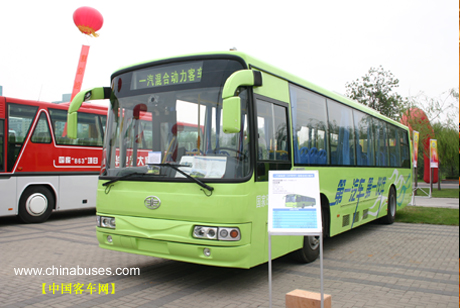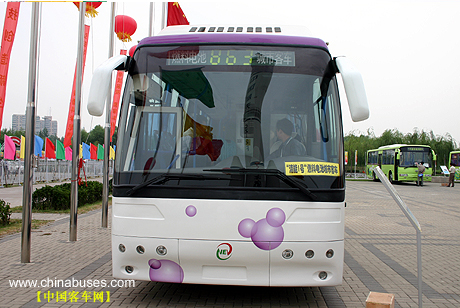|
Amid rising oil prices,
alternative-fuel autos are being driven into the spotlight as
they have lower emission and fuel costs. However, the new vehicles
still face a tough fight against conventional models with high
development costs and unresolved technical issues.
The hybrid engine system, which switches between
gasoline and electric, is already being put into commercial operation
while fuel-cell autos are seen as the ultimate solution to reduce
dependence on gasoline.
Chinese universities and automakers are gearing up
to ride a global trend to develop alternative-fuel vehicles. Made-in-China
autos are already on the way.

The hybrid engine bus researched by FAW of China
Fuel-cell, another type of electric auto, is seen
as an ideal method to develop a clean auto sector as the only
emission is water. The power in a fuel-cell comes from the reaction
of hydrogen and oxygen. It also needs hydrogen charging similar
to gas filling.
Tsinghua University developed two fuel-cell buses
which can drive at 70 km per hour for 200 kilometers. The hydrogen-powered
buses will debut on Beijing's roads next October.

Fuel-cell bus developed by Tsinghua University
Although the prospects seem rosy, there are also
challenges. Besides, technology difficulties, soaring research
and development costs may be the biggest challenge to accelerate
the development of fuel-cell vehicles.
|







